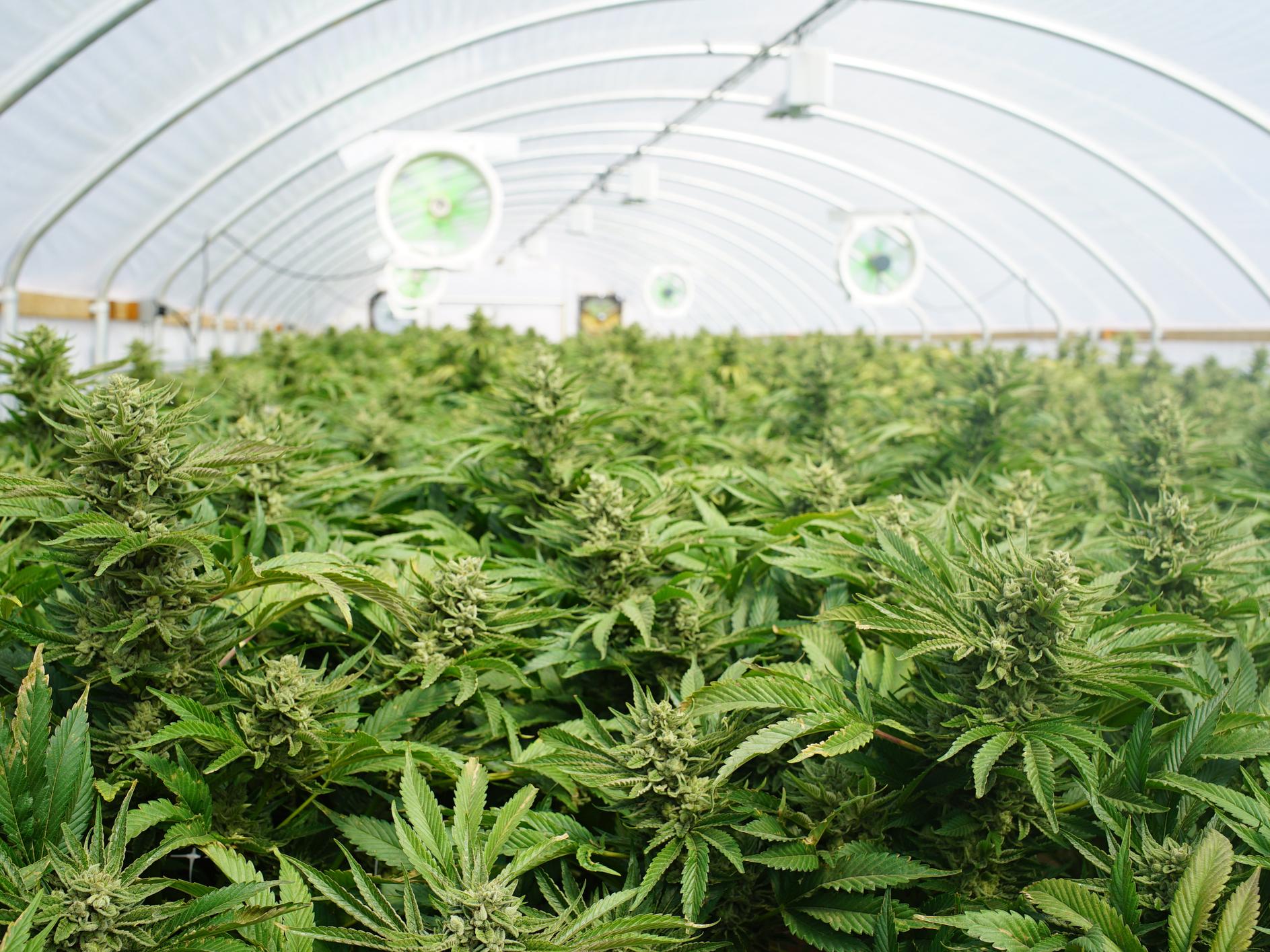Marijuana legalisation causing violent crime to fall in US states, study finds
Rates of assault and murder decreasing in regions near Mexican border where cannabis use has been partially legalised

Your support helps us to tell the story
From reproductive rights to climate change to Big Tech, The Independent is on the ground when the story is developing. Whether it's investigating the financials of Elon Musk's pro-Trump PAC or producing our latest documentary, 'The A Word', which shines a light on the American women fighting for reproductive rights, we know how important it is to parse out the facts from the messaging.
At such a critical moment in US history, we need reporters on the ground. Your donation allows us to keep sending journalists to speak to both sides of the story.
The Independent is trusted by Americans across the entire political spectrum. And unlike many other quality news outlets, we choose not to lock Americans out of our reporting and analysis with paywalls. We believe quality journalism should be available to everyone, paid for by those who can afford it.
Your support makes all the difference.The legalisation of marijuana for medical purposes has led to a significant reduction in violent crime in several US states bordering Mexico, according to new research.
The study, published in The Economic Journal, found that the rate of violent crime – including robberies, murders and aggravated assaults – fell by 12.5 per cent in counties close to the border after the introduction of medical marijuana laws (MMLs).
“MMLs allow people to grow and cultivate marijuana plants legally within the US,” Professor Evelina Gavrilova, one of the study’s authors, told The Independent.
“This means that people don’t need to buy illegal marijuana anymore so drug trafficking organisations (DTOs) have far fewer customers.”
DTOs have long been a major contributor to violent crime in US border states.
“Their namesake activity – the smuggling of illicit drugs – is known to be paired with extreme levels of violence, which DTOs use to contest the revenues in the drug market,” according to the study.
With these organisations now less active in the border regions due to falling demand, instances of violence have also fallen. “As revenues decrease, so does the incentive to invest in violent activity,” the paper says.
Robberies have decreased by 19 per cent in US border states which have adopted MMLs, murders by 10 per cent and assaults by nine per cent.
The biggest impact is on drug-law related murders, which have fallen by nearly 41 per cent. Countries closest to the border have seen the most significant reductions.
Eight US states have legalised the recreational use of marijuana, including California, one of four states that border Mexico. Two of the others – New Mexico and Arizona – both have MMLs.
Most illicit drugs in the US are supplied through Mexico. Every year, around six billion dollars crosses the border back to Mexico as profit for DTOs.
The market for marijuana is the largest drug market in the US and has always been a “lucrative cash crop” for DTOs, according to the study.
“It’s very likely that they are not going to simply give up on this market,” said Professor Gavrilova. “There are reports that some DTOs are starting to grow their own opium, which could be used to produce heroin that is smuggled into the US.
“They could also enter the legal marijuana trade themselves by setting up farms in a border state.”
Although MMLs do not allow for recreational use of the drug, “there can be a low threshold for prescription, depending on the state,” according to Professor Gavrilova.
This means that – even in those states without full legalisation – the consumption of marijuana is virtually decriminalised, she explained.
This accounts for the rapid fall in demand for illegal marijuana, even in states such as Arizona and New Mexico, where recreational use has not been legalised.
With their study, Professor Gavrilova and her research partners are hoping to draw attention to what they see as a highly beneficial but often-ignored consequence of legalisation.
Imran Rasul, Professor of Economics at University College London, agrees that the study usefully highlights “some important, unintended consequences of drug-related policies".
"Policymakers tend to focus on direct impacts rather than other potential impacts,” he told The Independent.
While some of these potential impacts can be negative – house prices can sometimes fall in areas with high cannabis use – others, such as a falling crime rate, can be extremely positive, Professor Rasul explained.
Individual US states could soon lose control over marijuana policy, however. Earlier this month, US Attorney General Jeff Sessions rescinded an Obama-era directive that promised an easing of raids and other federal enforcement actions as long as states had enacted “strong and effective regulatory systems".
Some critics believe such a move could lead to a new surge in drug-related violent crime.
"Jeff Sessions has shown a preference for allowing all commerce in marijuana to take place in the black market, which will inevitably bring the spike in violence he mistakenly attributers to marijuana itself,” Dana Rohrbacher, an Orange County Republican in the House of Representatives, said in a statement.
“He is doing the bidding of an out-of-date law enforcement establishment that wants to see a perpetual weed war”.
The move by Mr Sessions comes just a few months after a survey showed that 64 per cent of Americans were in favour of the legalisation of cannabis – the highest level of support since the survey began nearly five decades ago.
Join our commenting forum
Join thought-provoking conversations, follow other Independent readers and see their replies
Comments